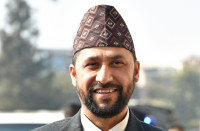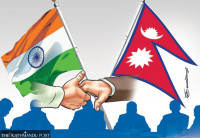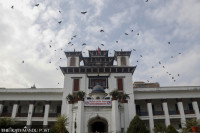National
Free distribution of disability aids hit by fund crunch
The office of National Disabled Fund in Kathmandu is visited by 10 to 15 disabled persons daily who are in need of disability aids. Only few of them get the items of their need, such as prosthetic limbs, crutches and wheelchairs.
Arjun Poudel
The office of National Disabled Fund in Kathmandu is visited by 10 to 15 disabled persons daily who are in need of disability aids. Only few of them get the items of their need, such as prosthetic limbs, crutches and wheelchairs.
The NDF, which is run by the Social Welfare Council, lacks funds and resources to address the need of the handicapped persons who visit its office requesting for disablity aids.
“We do not have sufficient components to make disablity aids right now,” said Yadu Nath Mainali, member secretary of the SWC. “We keep contact numbers of disabled persons who get turned away, so that we can call them when the components for their disablity aids have arrived.”
The Ministry of Women, Children and Senior Citizens has released Rs 2.5 million to run the NDF rehabilitation centre, which has been making artificial limbs, wheelchairs, crutches, white canes and hearing aids for persons living with different kinds of disabilities.
Mainali said the budget provided by the ministry was not enough to run the rehabilitation centre.
The NDF had twice invited tenders to purchase the components for artificial limbs after the ministry released the budget, but not a single company responded.
Sunita Poudel, administrative officer at the NDF, said the components for artificial limbs were not available in Nepali market.
“Financial trouble hit the NDF after Handicap International started phasing out its project in Nepal from last year,” she added.
Besides the NDF, Handicap International used to provide financial assistance to five other NGOs across the country.
Ashok Bikram Jairu, executive director of Nepal National Welfare Association, said his organisation had to lay off eight employees after Handicap International discontinued its support.
“We used to provide prosthetic limbs and other services for free of cost until December last year. We are unable to run free services these days,” he said.
The National Demographic and Health Survey-2011 show that 1.94 percent of the country’s population is living with disabilities.




 15.12°C Kathmandu
15.12°C Kathmandu















